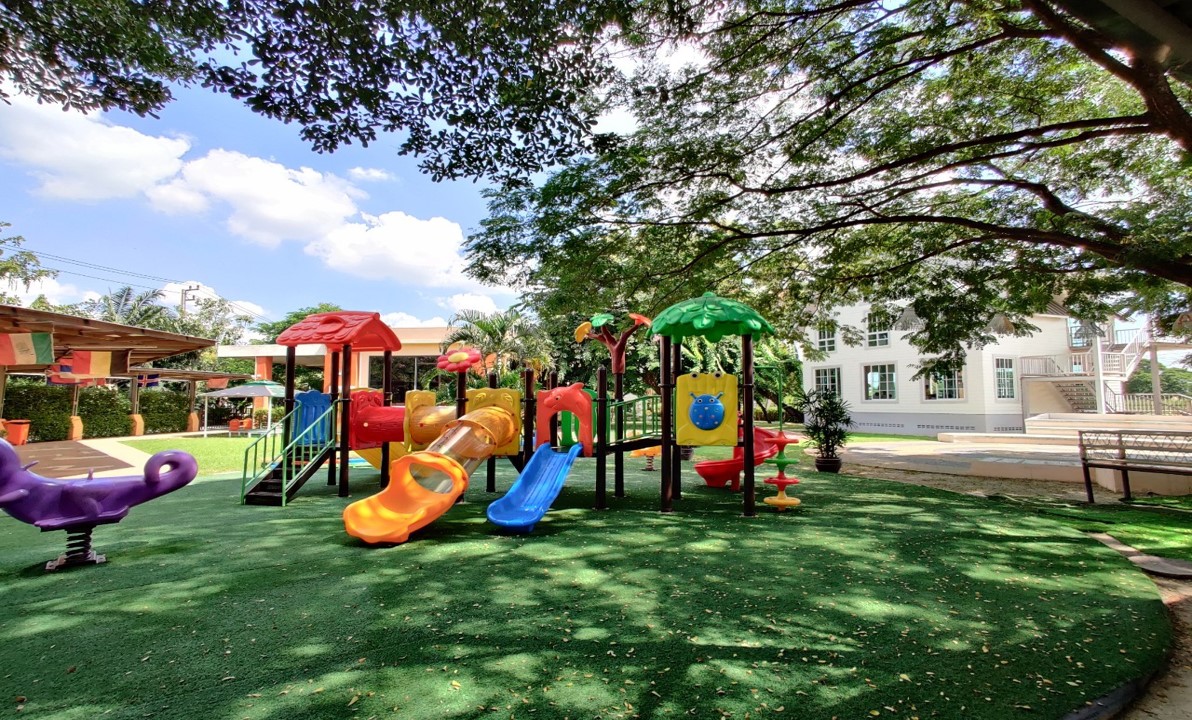How to Choose the Best International School in Pathum Thani
Identifying Your Child's Needs and Interests
Choosing the best international school for your child is an important decision that can significantly impact their educational journey and personal development. With many options available in Pathum Thani, it's crucial to consider various factors to ensure that the school aligns with your child's needs and aspirations. This guide aims to help parents navigate this crucial choice by offering practical tips and insights.
First, understanding your child's unique needs and interests is the foundation of selecting the right school. Each child has different strengths, weaknesses, and preferences that will affect their learning experience and overall happiness. By identifying these factors, you can narrow down the schools that best match your child's profile.
Secondly, evaluating the curriculum and teaching methods at different international schools is essential. A school's educational approach should resonate with your child's learning style and future goals. Whether you prefer a traditional academic focus or a more holistic approach, knowing what each school offers will help you make an informed decision.
Furthermore, the quality of a school's facilities and the variety of extracurricular activities available can greatly enhance your child's educational experience. State-of-the-art facilities and diverse activities support not only academic achievement but also personal growth and social skills.
Lastly, considering the level of community and parental involvement in a school can provide additional support for your child's education. A strong community creates a nurturing environment where students thrive both academically and emotionally.
Making the right choice might seem overwhelming, but with careful consideration of these aspects, you can find an international school in Pathum Thani that offers the best environment for your child's success.
Identifying Your Child's Needs and Interests
 Understanding your child's needs and interests is the first step in choosing the right international school. Each child has unique strengths, preferences, and goals that should guide your decision. Start by discussing with your child about their favourite subjects, hobbies, and activities. This conversation will give you insights into what they enjoy and where they excel.
Understanding your child's needs and interests is the first step in choosing the right international school. Each child has unique strengths, preferences, and goals that should guide your decision. Start by discussing with your child about their favourite subjects, hobbies, and activities. This conversation will give you insights into what they enjoy and where they excel.
Consider your child's learning style. Some children thrive in a structured environment, while others do better with a more flexible, student-centred approach. Knowing whether your child is a visual, auditory, or kinesthetic learner can help you select a school with teaching methods that suit them best.
Health and emotional well-being are also crucial. If your child has specific health needs or requires additional emotional support, look for schools that provide the necessary resources and have trained staff to assist. Evaluating these aspects ensures that the school can cater to your child's overall well-being and provide a comfortable learning environment.
Lastly, think about your child's future aspirations. If they have a keen interest in a particular career or academic field, choose a school that offers specialised programmes or extracurricular activities in that area. By aligning the school's offerings with your child's interests and needs, you can ensure a more fulfilling and successful educational experience.
Evaluating the Curriculum and Teaching Methods
The curriculum and teaching methods at an international school play a significant role in your child's education. It's important to evaluate whether the school's curriculum aligns with your educational goals and your child's learning style.
Check if the school offers a curriculum that follows international standards, such as the International Baccalaureate (IB) or Cambridge International Examinations (CIE). These programmes are recognised globally and provide a rigorous academic framework that prepares students for higher education. Make sure the curriculum balances core subjects with opportunities for creative and critical thinking.
Teaching methods should engage and motivate your child. Look for schools that incorporate a variety of teaching strategies, including collaborative projects, hands-on experiments, and technology integration. These methods can make learning more interactive and enjoyable. Schools that use differentiated instruction, where teaching is tailored to meet individual student needs, can also be beneficial.
Ask about the qualifications and experience of the teaching staff. Highly qualified teachers with international experience can offer diverse perspectives and innovative teaching techniques. Additionally, smaller class sizes often result in more personalised attention and better student outcomes.
Lastly, consider how the school assesses student progress. Continuous assessment through assignments, projects, and class participation can provide a more comprehensive picture of your child's abilities compared to standardised testing alone. By thoroughly evaluating the curriculum and teaching methods, you can choose a school that fosters your child's academic growth and love for learning.
 Assessing Facilities and Extracurricular Activities
Assessing Facilities and Extracurricular ActivitiesThe quality of a school's facilities and the variety of extracurricular activities offered can greatly enhance your child's educational experience. Modern facilities equipped with the latest technology provide a supportive environment for both learning and personal growth. When visiting schools, take note of the condition and availability of resources such as science laboratories, libraries, and technology centres. These facilities should be well-maintained and fully equipped to meet students' needs.
Sports facilities are also important. Look for schools with ample grounds, gymnasiums, and swimming pools as these promote physical health and teamwork. Ask if the school offers various sports and fitness programmes that cater to your child's interests. Participating in sports can boost your child's confidence and teach them valuable life skills such as discipline and cooperation.
Extracurricular activities play a crucial role in developing well-rounded students. Check if the school offers a broad range of activities, including arts, music, drama, and clubs that align with your child's hobbies and passions. Being involved in extracurriculars helps children develop new skills, make friends, and explore their interests outside the classroom.
Schools with strong extracurricular programmes often provide opportunities for students to participate in competitions, exhibitions, and community projects. These activities encourage students to achieve their best and develop leadership skills. By carefully assessing a school's facilities and extracurricular offerings, you can ensure a balanced and enriched education for your child.
Considering Community and Parental Involvement

A strong sense of community and active parental involvement are vital in creating a supportive school environment. Schools that foster a collaborative relationship between parents, teachers, and students typically see better academic and personal outcomes. Parents should be able to communicate openly with teachers and participate in school activities to stay involved in their child's education.
Look for schools that encourage parents to participate in events such as parent-teacher associations (PTAs), school fairs, and volunteer opportunities. These activities allow parents to engage with the school community and contribute to their child's learning environment. A school that values parental input is more likely to address concerns promptly and effectively.
Regular communication between the school and parents is essential. Check if the school provides updates on student progress through newsletters, meetings, and online portals. Transparent communication ensures that parents are well-informed about their child's achievements and areas requiring additional support.
Additionally, consider how the school integrates community values and service into its curriculum. Schools that organise community service projects help students develop empathy and a sense of responsibility. These experiences can be instrumental in shaping well-rounded, socially conscious individuals.
By prioritising community and parental involvement, international schools create a nurturing environment that supports students' holistic development. This collaborative approach ensures that children receive the guidance and encouragement they need to succeed both academically and personally.
Conclusion
Choosing the best Thai international school for your child entails careful consideration of several critical factors. By identifying your child's needs and interests, you can ensure that the chosen school aligns with their personal and academic goals. Evaluating the curriculum and teaching methods further helps in selecting a school that offers the right educational approach and engages your child's learning style.
Assessing the quality of facilities and the range of extracurricular activities ensures that your child receives a holistic education that includes physical development and creative growth. Finally, the importance of strong community ties and active parental involvement cannot be overstated. These elements create a supportive environment that nurtures your child's overall well-being.
At Invictus International Pathum Thani, we strive to offer an exceptional educational experience that meets all these criteria. Visit us today to discover how our programmes can help your child thrive academically and personally.